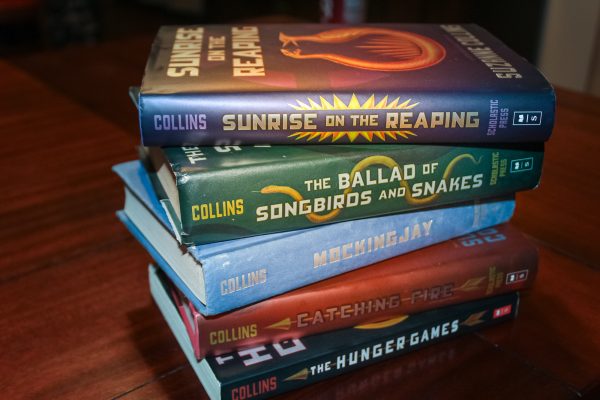“The Things They Carried” author wins Texas Writer Award at annual Texas Book Festival
Most students have a vague memory of the required reading from high school, but sometimes one book and its author stand above the rest. For many students, the author who recently was awarded the Texas Writer Award at last weekend’s Texas Book Festival was someone who persisted in their minds past required reading lists from high school.
Author Tim O’Brien is known for his short stories and books, “The Things They Carried,” “Going After Cacciato” and several others. In his books he tackles the subject of war – often times the Vietnam War.
O’Brien’s books have won the National Book Award for Fiction in 1979 and James Fenimore Cooper Prize for Best Historical Fiction in 1995. O’Brien was recently recognized for lifetime achievement by the Dayton Literary Peace Prize in 2012 and the Texas Writer Award in 2012.
A student from St. Edward’s University, Harrison Hadland, says O’Brien is one of his favorite writers and drove 40 minutes just to have the opportunity to meet O’Brien and have a book signed by him.
Hadland, who is currently a sophomore, had been required to read O’Brien’s “The Things They Carried” his junior year of high school. Three years later, O’Brien’s books were still on Hadland’s mind.
“It was fantastic … I loved the opportunity to actually meet one of the authors who I really admire and truly enjoy,” said Hadland. “The great part of his ability to write is his storytelling … I was pretty amazed at his ability to describe the full range of human emotion in war.”
O’Brien explained why it was so important for him that his books are able to affect a younger generation, when his books became required reading at many high schools and colleges.
“I’ve often heard that college and high school students [say] ‘well yours is the only book I’ve ever read.’ It feels good to get someone to like a book because maybe then they’ll read more,” O’Brien said. “I went through my war and the next one might be … your generation’s … wars are ugly and nasty. It’s too late for my generation, but it might not be too late for your generations.”
In a 2010 article in The New York Times, O’Brien also commented on the similarities and differences between the Vietnam War and the conflicts in Iraq and Afghanistan.
“Obviously there are differences,” O’Brien said, “chief among them the absence of the draft. But there are enough similarities. These are wars in which there are no uniforms, no front, no rear. Who’s the enemy? What do you shoot back at? Whom do you trust? At the bottom, all wars are the same because they involve death and maiming and wounding, and grieving mothers, fathers, sons and daughters.”
O’Brien also gave advice for students interested in becoming writers.
“My advice is very simple. It’s one sentence. It’s sit down and write, easier said than done,” O’Brien said.
Being a writer takes a lot of commitment, according to O’Brien.
“I spend everyday, all day–holidays, my birthday, my wife’s birthday – writing and … you got to force yourself to do that to get a pay off,” O’Brien said.
O’Brien elaborated about what it takes to be a writer.
“You’ve got to sit down regularly and do it and not dream about it or think about it. You can’t write a short story or novel or poem while you’re bowling or golfing; it can’t be done,” said O’Brien. “You got to sit down and do it, that’s what I would say to those people at St. Edward’s that might want to be writers.”






